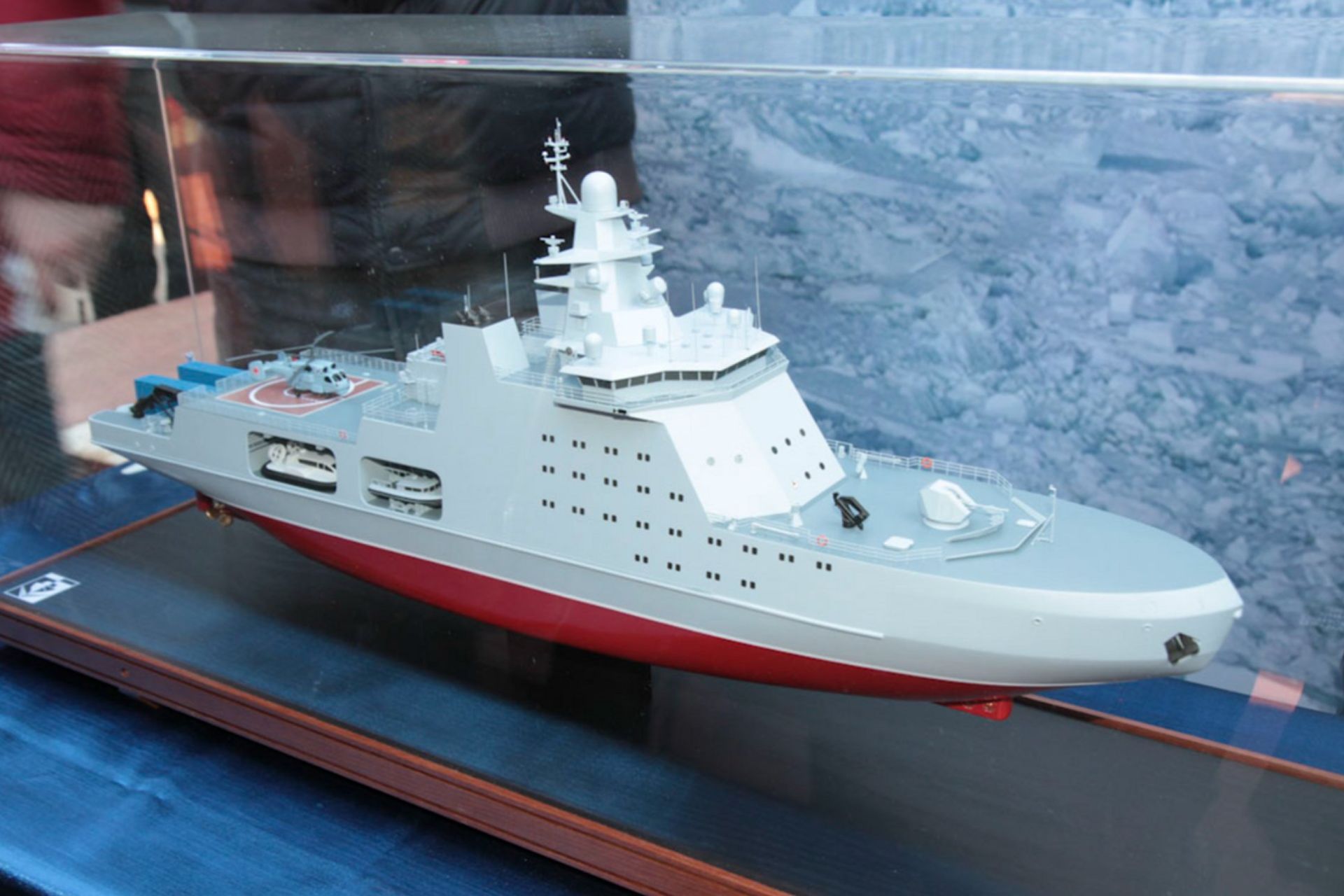Breaking News
Second Project 23550 combat icebreaker Nikolay Zubov set for launch by year-end.
According to information published by Tass on August 13, 2024, the second combat icebreaker of Project 23550, Nikolay Zubov, currently under construction at the Admiralty Shipyards in Saint Petersburg, is scheduled to be launched by the end of this year.
Follow Army Recognition on Google News at this link

A model of the Project 23550 patrol ship. (Picture source: Министерство обороны РФ)
This vessel, an ice-class patrol ship, is the second in its series and the first serial ship following the lead vessel Ivan Papanin, which is currently undergoing sea trials. The Nikolay Zubov was laid down in November 2019, and upon completion of its construction and trials, it will join the Kola Flotilla of the Northern Fleet's diverse forces.
Project 23550 ice-class patrol ships, designed by the Almaz Central Marine Design Bureau, were developed as a replacement for the Project 21180 military icebreakers, of which only one, the Ilya Muromets, was built and delivered to the fleet. These versatile ships can perform as tugs, patrol ships, and icebreakers.
The Nikolay Zubov boasts a top speed of 18 knots, a displacement of around 8,500 tons, a length exceeding 100 meters, and a beam of about 20 meters. It has an operational range of 10,000 nautical miles and can navigate through ice up to 1.7 meters thick. The icebreaker is armed with an AK-176MA automatic artillery system, with provisions for missile weaponry, and will also carry a multipurpose helicopter.
Comments
By building these vessels, Russia is positioning itself as a dominant power in the Arctic, capable of protecting its vast northern coastline, asserting control over key shipping routes, and safeguarding its claims to the region's abundant natural resources, particularly oil and gas. The presence of these ships also serves as a deterrent to other nations that might challenge Russia's Arctic ambitions.
However, the development of the Project 23550 ships has faced several setbacks, primarily due to financial constraints and logistical challenges.
Originally slated for delivery by 2020, the timeline has been extended to 2024, reflecting broader issues within Russia's shipbuilding industry and economic pressures exacerbated by international sanctions. These delays indicate that while Russia is committed to expanding its Arctic capabilities, it faces significant hurdles in realizing its ambitions fully.
The Project 23550 ships are also part of a larger trend of militarization in the Arctic, where several nations, including the United States and China, are increasing their military presence.


























